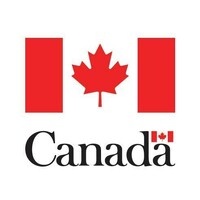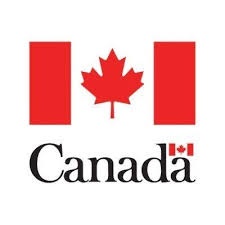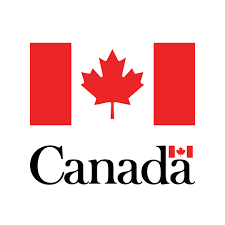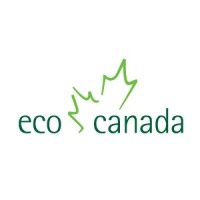
Closed
EcoAction — Stream 2
Last Update: December 9, 2025
Canada
Innovative solutions for freshwater ecosystem health in Canada
Grant and Funding
At a glance
Funding available
Financing goals
Integrate new technologies
Eligible Funding
- Maximum amount : 200,000 $
- Minimum amount : 25,000 $
- Up to 50% of project cost
Timeline
- Receipt of requests is now closed
Eligible candidates
Eligible Industries
- Professional, scientific and technical services
- Educational services
- Other services (except public administration)
- Public administration
Location
- Canada
Legal structures
- Non-profit
- Public or Parapublic institution
- For-profit business
Annual revenue
- All revenue ranges
Organisation size
- 100 employees maximum
Audience
- All groups
Non-profit candidates
Sector of operation
- Higher Education
- Research
- Environment
- Economic, Social and Community Development
- Business Associations
- Professional Associations
- Diversity and Inclusion
Target groups
- General public
- Indigenous peoples
- Rural / Remote communities
- Nonprofits / charities
- Academia / students
- Community leaders
Revenue structures
- All structures
Scope
- Municipal
- National
Overview
EcoAction Stream 2: Freshwater Sustainability and Innovation across Canada offers funding up to $200,000 to support projects that pilot clean technologies and innovative solutions for improving freshwater quality and ecosystem health. Eligible activities include designing, scaling, and transferring innovative tools and technologies, as well as improving data access for better water management across Canada.
Activities funded
- Design, testing, or demonstration of innovative tools, technologies, and techniques applicable across Canada to improve freshwater quality or ecosystem health.
- Scaling up or transferring proven innovative tools, technologies, and techniques from one region to other areas in Canada to test their effectiveness in improving freshwater quality or ecosystem health.
- Studies or projects related to freshwater that enhance circular economy opportunities for specific communities or sectors.
- Projects enabling communities to increase resilience to climate change, foster local economic growth, or improve value chain efficiency in freshwater management.
- Improving data access to facilitate decision-making or actions to enhance freshwater management in Canada.
- Projects incorporating diverse knowledge systems, including Indigenous perspectives, to inform freshwater stewardship and decision-making.
Eligibility
- The applicant must be a national non-profit organization, which includes charitable or volunteer organizations, professional associations, and non-governmental organizations.
- Municipal and local governments are eligible to apply.
- National research, academic, and educational institutions can apply.
- Small national for-profit entities with under 100 employees implementing innovative or clean technological solutions may apply.
- Eligible Indigenous entities include organizations, governments, councils, boards, communities, associations, and authorities.
- Projects must address at least one of the objectives specified in the call for applications.
- Projects should demonstrate measurable positive environmental outcomes by their conclusion.
- Activities must be implemented within Canada, and the projects should have national significance or demonstrate potential for national scaling.
Who is eligible?
- National non-profit organizations, such as charities or volunteer organizations, professional associations, and non-governmental organizations.
- Local and municipal governments.
- National research, academic, and educational institutions.
- Small national for-profit entities piloting innovative or clean technology solutions (with fewer than 100 employees).
- National Indigenous organizations, governments, councils, boards, communities, associations, and authorities.
Eligible expenses
- The costs of human resources, including salaries and benefits.
- Contractor services required to carry out project-related activities.
- Management and professional services costs such as accounting, monitoring, communications, translations in official languages, audit fees, and legal fees.
- Travel, accommodation, events, or conference expenses compliant with the Treasury Board of Canada's Directive on Travel, Hospitality, Conference, and Event Expenditures.
- Costs related to Indigenous ceremonial offerings and ceremonies, including traditional medicine, cultural foods, tea, and sacred plants.
- Monetary honoraria for Indigenous Elders or knowledge keepers for participation in specific activities, including translation, interpretation, leading ceremonies, sharing traditional knowledge, and demonstrating traditional arts.
- Equipment and supplies costs.
- Printing, production, and distribution costs.
- Purchase or rental of equipment.
- Vehicle rental and operational costs.
- Costs associated with land protection agreements like leases, conservation easements, or covenants.
- A reasonable share (15% or less) of overhead or administrative costs that directly stem from project execution.
Eligible geographic areas
- Projects must be implemented in multiple locations in Canada.
Selection criteria
- Project proposals must pass an administrative review conducted by program staff to confirm eligibility.
- Eligible proposals undergo a technical review by subject matter experts to ensure scientific and technical feasibility.
- Proposals are evaluated by a committee to ensure alignment with program priorities and criteria during the evaluation and approval process.
How to apply
1
Access Application System (SGESC)Log in to the Grants and Contributions Enterprise Management System (SGESC), the online application system used by Environment and Climate Change Canada (ECCC).
2
Prepare ApplicationUse the Guide du demandeur SGESC for detailed instructions on preparation, creation, modification, and submission of your project application.
- Develop a comprehensive project proposal that includes a detailed budget, objectives, and expected performance indicators.
- Ensure all required information, such as permits and impact assessments, is part of your application.
3
Complete Online ApplicationUtilize the SGESC system to fill out all sections of the application form thoroughly.
- Check for completeness and adhere to guidance provided in the SGESC Guide to avoid errors.
- Include a clear budget that indicates a minimum of 50% of the project funding from non-federal sources.
4
Submit ApplicationSubmit your completed application through the SGESC system by the deadline (April 10, 2025, at 12:00 PM PT/3:00 PM ET).
Ensure sufficient time is allowed for submission in case any last-minute errors need resolving, ideally 24 hours before the deadline.
5
Confirmation of SubmissionWait to receive written confirmation of submission for your records.
6
Await Selection ResultsApplications will be processed through a competitive merit-based selection process.
Successful and unsuccessful applicants will both receive a written notice once decisions are made.
Additional information
- The deadline for submitting applications is April 10, 2025, at 12 PM Pacific Time / 3 PM Eastern Time.
- The funding contribution requires a 50% matching from non-federal sources for the entire project cost.
- Projects must conclude by March 31, 2027, allowing for either annual or multi-year timelines.
- Applications must be submitted through the Grants and Contributions Enterprise Management System (GCEMS), Environment and Climate Change Canada's online application system.
- Funding decisions are made through a competitive merit-based process, with evaluations on administrative, technical, and program priorities.
- Approved applicants must negotiate a contribution agreement which includes confirmation of all funding sources and a detailed project plan.
- Submission of final and progress reports is mandatory to ensure compliance and continued funding disbursement.
- Payment of funds is contingent on project cash flows and reporting requirements.
- The final payment retention of at least 10% is dependent on submission and approval of the final project report.
Contacts
EcoActionStream2-EcoActionVolet2@cwa-aec.gc.ca
Canada
Apply to this program
Frequently Asked Questions about the EcoAction — Stream 2 Program
Here are answers to the most common questions about the EcoAction — Stream 2. This section explains what the program is, how much funding is available, eligibility requirements, application deadlines, and other important details to help you determine if this grant is right for your business.
What is the EcoAction — Stream 2?
How much funding can be received?
Who is eligible for the EcoAction — Stream 2 program?
What expenses are eligible under EcoAction — Stream 2?
Who can I contact for more information about the EcoAction — Stream 2?
Where is the EcoAction — Stream 2 available?
Is the EcoAction — Stream 2 a grant, loan, or tax credit?
Apply to this program
More programs like this

Grant and FundingClosed
Industrial Research Assistance Program (IRAP) – AI Assist
National Research Council Canada (NRC)Supports Canadian SMEs in adopting and integrating advanced AI solutions

Grant and FundingClosed
Canada Public Transit Fund
Housing, Infrastructure and Communities CanadaSupports long-term public transit and active transportation infrastructure development

Wage Subsidies And InternsOpen
Industrial Research Assistance Program (IRAP) — Youth Employment Program (YEP)
National Research Council Canada (NRC)Money to hire a student

Researchers And FacilitiesPartnering and CollaborationWage Subsidies And InternsOpen
Mitacs Accelerate
MitacsConnect organizations with academia for research and innovation collaboration

Grant and FundingClosed
Canada Service Corps – Service Placements Regional Stream
Employment and Social Development Canada (ESDC)Funding for organizations to develop youth volunteer service placements

Grant and FundingClosed
ISED — Artificial intelligence (AI)
Innovation, Science and Economic Development Canada (ISED)Supports testing innovative AI prototypes for Canadian government needs

Grant and FundingOpen
Global Innovation Clusters
Innovation CanadaFinancial assistance to work in collaboration on innovation projects

Grant and FundingOpen
IP for Business
Canadian Intellectual Property Office (CIPO)Intellectual property training, tools and expertise

Wage Subsidies And InternsOpen
ECO Canada — Student Work Placement Program
ECO CanadaMoney to hire students for an environmental co-op

Grant and FundingOpen
Active Transportation Fund
Housing, Infrastructure and Communities CanadaSupports infrastructure projects for safer, more accessible active transportation
Sign up to our platform to access the EcoAction — Stream 2 information sheet for free
Get access to 4,000+ programs, practical guides, personalized alerts, and an AI assistant to support your grant applications.